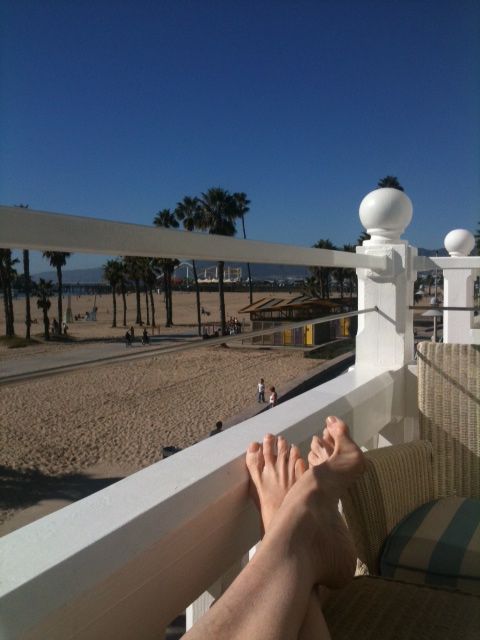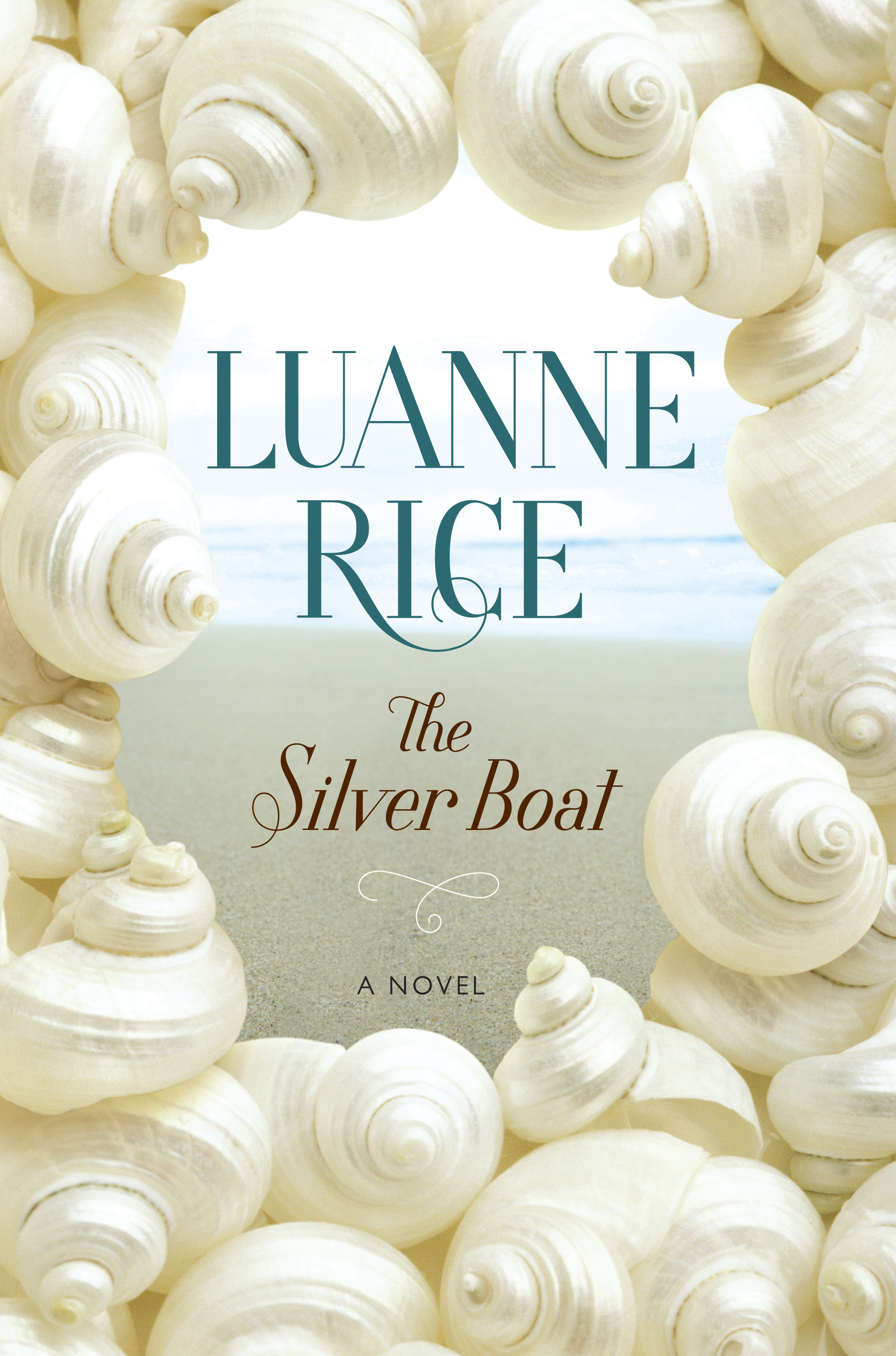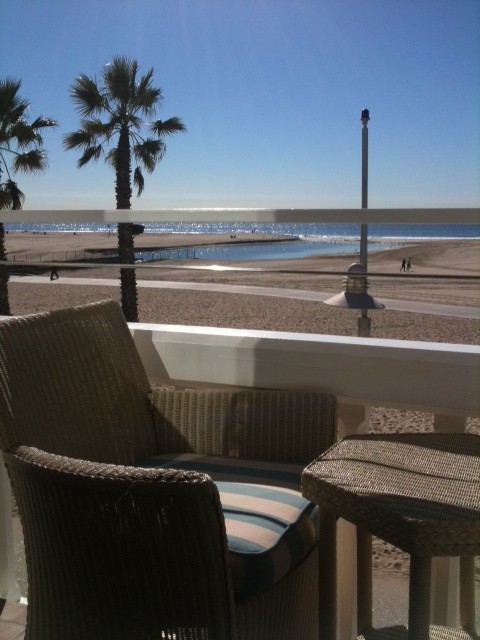Summer is its own gift, from the solstice to the equinox, but there is something about the first nine or so days, the June part of summer, that feels most wild and tender. We've made it through winter, and, as in this year, a tempestuous spring. It was cold, we had blizzards, it was rainier than usual, and a friend left this earth. But here right now is the morning sun, incredible warmth, the green marsh, the call of Red-winged Blackbirds, the sparkling Connecticut River, the glass-calm Long Island Sound.
Read MoreIn Praise of Recklessness: Notes on Writing
 When I was little and would leave my mother's side, she would always say, "Be careful." And I was, mostly. Those words were my invisible tattoo. I paid attention to the rules. We didn't have sidewalks in our neighborhood, and when I walked my sisters to school, I made sure we stayed a safe distance off the busy road, a few feet onto the grass or around trees, out of danger. In seventh grade and through high school I attended Catholic school. One of my boldest moves was roll the waistband of my uniform skirt a few times to make it shorter than the rules--and nuns--allowed. I took care.
Even now I have to hold myself back from using those words as a mantra: be careful. I say the phrase too often to the young people in my life. If I thought my cats would heed, I would say it to them, to keep them from falling off the high, narrow beams they love to explore. In certain areas of my life, I am protective--even over-protective.
When I was little and would leave my mother's side, she would always say, "Be careful." And I was, mostly. Those words were my invisible tattoo. I paid attention to the rules. We didn't have sidewalks in our neighborhood, and when I walked my sisters to school, I made sure we stayed a safe distance off the busy road, a few feet onto the grass or around trees, out of danger. In seventh grade and through high school I attended Catholic school. One of my boldest moves was roll the waistband of my uniform skirt a few times to make it shorter than the rules--and nuns--allowed. I took care.
Even now I have to hold myself back from using those words as a mantra: be careful. I say the phrase too often to the young people in my life. If I thought my cats would heed, I would say it to them, to keep them from falling off the high, narrow beams they love to explore. In certain areas of my life, I am protective--even over-protective.
But not writing.
When it came to writing, I encourage recklessness. This comes from experience. Writing my first novel, Angels All Over Town, I drew on my life. It's fiction--not memoir, not autobiography--but emotionally my book was very close to what I knew to be true at the time I wrote it. It's a story of sisters who had considered themselves inseparable, and then things come along to separate them: mainly love and loss. They fall in love with men who don't necessarily get along; their father dies. They grow up, and it hurts. These facts mirrored reality in my life.
If I'd been careful, everyone would have gotten along. Everyone would have been nice to each other. The protagonist wouldn't have told the messy truth about her father's alcoholism. The sisters would have been chaste instead of falling dangerously in love with Australian sailors on the Newport docks. The mother would have spouted words of wisdom instead of isolating herself at her easel with watercolors and cups of milky tea.
Fiction requires bravery. Writing that novel allowed me to see my characters, those three sisters, with some measure of detachment. They didn't climb the Matterhorn or sail the Atlantic single-handed--they lived in Newport and made their way in life, and in small ways and large ways learned about their world, and about each other, and, most scarily, about themselves. They faced their father's death. They were wild. They drank, but even more, the oldest sister recognized the way their father's drinking had affected the family. I was in my twenties when I wrote that book. What did I actually know back then? More than I thought, apparently.
If you're a writer, write the deepest and truest you can. Go close to the edge. Play in traffic. Sit at your desk every morning and face the page. Write what alarms you. Don't censor yourself or worry about what your friends--or your husband, or your mother, or your high school teacher--will think. If your dreams are haunted by a terrible family secret, and you feel it's your duty to keep it under wraps, don't. Write about it. Write down every detail. Tell the secret. Write it from your heart.
You can always burn the pages, but I hope you won't.
Sometimes writers hold themselves back by comparing themselves unfavorably to their idols--or their peers, or their younger or older or imaginary better selves. This is a waste of time and spirit; it will do nothing but hold you back. All you can do is face the page. "Believe in yourself" might sound corny and New Age and dumb, but it's not. It's the way to go. If you feel called to write, then you must write. It's nice to have support and affirmation from outside, but that's not always possible or forthcoming. So you have to give it to yourself.
This doesn't mean you should consider shoddy work to be brilliant. The Rules of Grammar are not made to be broken. Read The Elements of Style by William Strunk and E. B. White. Read books you love. Read a lot. Remember that thinking about writing, dreaming about writing, talking about writing, attending workshops about writing is not the same as writing. The only way to write is to sit down and write. Write for hours every day if possible. Don't hold yourself back. Tell secrets. Make up stories. Tell the truth--or don't. Be reckless.
I dare you. There's nothing more thrilling, and I want that for you.
A chance to meet with writing students...
 Speaking to students is one of my favorite things to do. There is something about meeting young writers, full of hope and ideas, and letting them know I believe in them, I know they can do it if they really want to. That seems to me to be the most important factor: desire. The desire to write, to express what's inside, to complete a work of fiction or non-fiction, to want it so badly you won't give up on yourself or the work.
Speaking to students is one of my favorite things to do. There is something about meeting young writers, full of hope and ideas, and letting them know I believe in them, I know they can do it if they really want to. That seems to me to be the most important factor: desire. The desire to write, to express what's inside, to complete a work of fiction or non-fiction, to want it so badly you won't give up on yourself or the work.
 When I was a child, my mother was getting her master's degree in education, and she practiced on my sisters and me. She would have writing workshops each summer morning, and we'd sit at the oak table in our cottage at Hubbard's Point. She'd tell us to write a story about crabbing at the end of the beach, or swimming out to the raft, or to compose a paragraph about the clouds in the sky, or something beautiful or ugly or enchanting or disturbing we'd seen that week. In that way, she helped us realize the dailiness of writing, the way our ordinary lives could add up to an essay or a story.
When I was a child, my mother was getting her master's degree in education, and she practiced on my sisters and me. She would have writing workshops each summer morning, and we'd sit at the oak table in our cottage at Hubbard's Point. She'd tell us to write a story about crabbing at the end of the beach, or swimming out to the raft, or to compose a paragraph about the clouds in the sky, or something beautiful or ugly or enchanting or disturbing we'd seen that week. In that way, she helped us realize the dailiness of writing, the way our ordinary lives could add up to an essay or a story.
Years later I began holding writing workshops--one day each summer, never planned in advance, just when the spirit moved me--and I'd invite children from Hubbard's Point to come to my house for a few hours of writing. Frequently the cats would join in, sitting on my desk (including Tim and Emelina, shown here in their favorite basket), and providing inspiration.
It is important to be steady and write every day--you must actually write and not just read about writing, dream about writing, or look online for other people writing about writing. You have to do it. And you have to train yourself to be good at it.
Thursday I had the privilege of speaking to Joe Monninger's English class at Plymouth State University. I met his students, told them what it's been like for me, talked about research, heard their questions about ways of writing, possibilities of publishing. Outside, the trees were turning red and gold, maybe the foliage was at its peak, and the sky over the White Mountains of New Hampshire was brilliant blue.
To write
 To write you have to like being alone. Ideas have to flow in and out like air through cracks in the cabin wall. Physical space isn't important; the flow can happen in a tiny room. What counts is internal space. The voices you hear belong to your characters. I clear my life, days and weeks and months at a time, and I lie about it. It embarrasses me to need so much solitude. So I write this today with a sense of coming clean.
I'm a terrible one for canceling. I make plans because I love the people I make them with. But sometimes even a single appointment can worry me, or shift my focus to that day, that moment on the calendar, and I wind up saying I'm sorry, I won't be able to.
This might be extreme. Some writers might need groups or gatherings or just plain old daily contact more than I do. I need solitude. When I wake up in the morning I get to my writing without speaking a word. Talking before work shifts my focus away. It's not that what I'm writing is important, or beautiful, or noteworthy--it's just what I do. The words are important to me, maybe no one else. I tell stories because if I didn't I would stop breathing.
To write you have to like being alone. Ideas have to flow in and out like air through cracks in the cabin wall. Physical space isn't important; the flow can happen in a tiny room. What counts is internal space. The voices you hear belong to your characters. I clear my life, days and weeks and months at a time, and I lie about it. It embarrasses me to need so much solitude. So I write this today with a sense of coming clean.
I'm a terrible one for canceling. I make plans because I love the people I make them with. But sometimes even a single appointment can worry me, or shift my focus to that day, that moment on the calendar, and I wind up saying I'm sorry, I won't be able to.
This might be extreme. Some writers might need groups or gatherings or just plain old daily contact more than I do. I need solitude. When I wake up in the morning I get to my writing without speaking a word. Talking before work shifts my focus away. It's not that what I'm writing is important, or beautiful, or noteworthy--it's just what I do. The words are important to me, maybe no one else. I tell stories because if I didn't I would stop breathing.
One can never be alone enough to write -- Susan Sontag
Writing, at its best, is a lonely life. Organizations for writers palliate the writer’s loneliness but I doubt if they improve his writing. He grows in public stature as he sheds his loneliness and often his work deteriorates. For he does his work alone and if he is a good enough writer he must face eternity, or the lack of it, each day -- Ernest Hemingway, 1954 Nobel Prize acceptance speech
The computer makes writing both easier and harder. It makes revision easier but it's a portal to the Internet which is a distraction. The internet has pluses and minuses. When I first discovered it I was distracted by it all the time. Email, constant contact--both wonderful and destructive, like the best addictions. Facebook provides the sense of a social life; Pinterest seems to me to be intuitive and wordless communication, a way to say who you are, or at least who you are at the moment of pinning a picture or poem; Twitter is immediate like speed or sugar; a comic artist introduced me to Tumblr, and I think I like the feeling of it. But let's face it, the Internet is hell on writing. My father, who sold and repaired Olympia typewriters, gave me an Olympia SM 9 when I was in school. I'm glad they still make ribbons for it. I've stocked up in case they stop. I think the sound of the keys comforts me; I know the cats like it. They sit close, as if the typewriter is a hearth. Most of the time I still write on my computer and sometimes on those nights I dream I am typing. Either way the stories get told. Life is writing and writing is life.
paradise
i wrote a novel called what matters most, and once again i've been putting a question mark at the end of the title, asking myself the question. i guess you'd say i'm an emotional sort, and i really want to understand what i feel. writing helps me with this. the most wonderful things, the most painful things, all of life touches my heart, and i bring it to my desk. characters come to me, and through them i tell the stories that tear me apart and put me back together. when i was younger i was motivated by need and desire--full-out, pedal to the metal, have to have it kind of thing. believe me, i still have my moments, but now the feelings are tempered by, i hope, some degree of self-awareness. that comes from writing.
my early novels told what i knew as a young woman. as time goes on, and life hands me more experience, they reflect what i have learned--not just factually, but emotionally. shades of marian the librarian in "the music man", sadder-but-wiser-girl that she was. am i saying too much here? i'm in the mood to tell you everything.
last night i took a ride along the coast with a friend. there was moonlight on the sea. lots of new houses had been built in the once-open space. nature is so staggeringly beautiful, and we were saying how sometimes we don't appreciate what we've got till it's gone. at which point i began to sing joni mitchell's big yellow taxi -- i couldn't help myself. "they paved paradise and put up a parking lot..." (poor friend, having to hear me sing.)
you know me well enough to know that seeing habitat destroyed and creatures killed makes me cry. (it really does...i actually hug trees.) but life has many metaphorical parking lots. you can pave over relationships, too. i know, because in the past i've done it. such a human tendency to want resolution--i'm right, you're wrong, i'm bad, you're good. or, maybe you're bad, i'm good. no in between, no grey area, no room for the maybes that come with taking a more compassionate, realistic, look at life. (see above: sadder but wiser.)
i may be falling in love--with the world as it is, not as i would have it. to put it another way, i'm finding it easier to look at what is true than to pretend something else. yesterday someone told me that things happen if they're supposed to--no amount of forcing or denying or hiding will change what is. so why not practice radical acceptance, and lovingkindness for where we are right here, right now?
so what matters to me is love, family, friends, honesty, this broken paradise, moonlight on the sea and knowing it won't last forever but will come back again, gratitude for what i've been given, and the awareness that comes through living life one day at a time.
the creek
box full of poem scraps, ideas, ideas,
songs in
a minor key.
moleskine diaries,
thank you
harrison, kooser,
thank you
hemingway,
thank you.
does every writer
try? or why
limit it to writers?
a good bonfire
might help.
lines about the theater
and mosquitos.
moving the box
means moving the creek.
from the mesa
you can see water
at the base
of the canyon.
(written in new york city during a thunderstorm, 17 june 11)
First Copy of The Silver Boat (out April 5)
Today at Shutters I received the first copy of The Silver Boat, and I am thrilled, and it seems so appropriate to have had my first look right here, because this is a place I really enjoy writing.
So many thanks to Pamela Dorman Books/Viking and the wonderful team that created my book. Many talented people are involved in every aspect of production.
Pam is a genius publisher and editor. Not only that, she is a close friend. We started off together long ago; she was my editor for Crazy in Love and several other titles, and we are overjoyed to be working together again. When I somehow managed to e-mail her my thanks while jumping for joy, she wrote back: "I love it, too, and for us all, it has been a labor of pure pleasure."
Pam and her team have made the hardcover truly beautiful; it feels like a gift, turning the pages, seeing another new and wonderful thing. The typeset, the frontispiece,the title page, the luminous cover.
How fitting to be seeing this at Shutters. This is my favorite hotel, and I often come here to write. The Silver Boat is set on Martha's Vineyard and in Ireland, connected by the Atlantic Ocean. It is wonderful to be seeing the first copy while gazing out the window at the Pacific.
Sometimes I write in the lobby, other times on the balcony. When in the sun I wear my lucky cap with this logo:
Right now, because the sun is just starting to go down, I think I'll put on my cap and read The Silver Boat outside, in a cozy wicker chair...
Away
I'm spending a little time in California.
There's a place I love to stay, overlooking the Pacific Ocean. I write to the sound of the waves; fall asleep to them, too. When I think back on all my novels, so many (including my forthcoming The Silver Boat) have long sections written in this hotel--in fact, in this very room. It makes me happy to be here. 

Writing as a moveable feast. Do the ideas come differently in far-away places? I think so, a little. I like to write in different rooms. There's no place like home, but I love to dig in here, without everything around me being quite so familiar. I show up in the lobby every morning, and write as I watch the world go by. Friends visit for tea, or to write together. 
(with Audrey Loggia and Saffron Burrows.)
By day, it's right for writing; at night, it's quite a different scene...  Exciting, filled with music and conversation. Very cozy, all through the seasons, to sit by one of the two fireplaces and dream.
Exciting, filled with music and conversation. Very cozy, all through the seasons, to sit by one of the two fireplaces and dream.
It feels like my home away from home. (It's possible to have more than one of those...) Every day I see dolphins swimming past. The beach is wide; I walk along the tide line every day. Yesterday I found a sand dollar. I could watch the shorebirds for hours. 
Sometimes I do.
P.S. My home away from home is Shutters on the Beach...
Life of a Book
The Silver Boat feels very alive to me. It's only October, and the novel won't come out until April 2011, but already it's making its way in the world. I'm always amazed at the secret, labyrinthine, enchanted life of a novel, and I thought maybe you would be, too. First it has to be written. That in itself is pure magic and spirit. The initial idea lodges in my heart, I live with it for some time, and soon I find yourself looking for a pen, jotting down the first lines, the character's name, a vision of where she lives, what she sees. Or maybe the idea is big and fully formed enough for me to go straight to the computer, open a new file, and let the story flow.
Living with the novel, listening to the characters, is more privilege and joy than work. To wake up every morning, hit the desk and start up where I'd left off the night before, let my characters lead me deeper, is the best. I'm never happier than when writing.
When I've written the last page, reread the draft, feel it's time to let it go, I send the manuscript to my agent and my publisher. For many years, since my first novel, I've incorporated talismanic elements into the submission; I almost always find a card, or a postcard, that somehow illustrates the essence of my new novel. I still remember the one I used for Crazy in Love: Winslow Homer's Summer Night, a painting of a couple dancing in moonlight on the beach.
The postcard I included with the manuscript Secrets of Paris, was a photograph of a woman writing at a Paris cafe, and actually inspired Viking to use it as the book cover.
Talismanic postcard or not, There are some tense days, waiting for a reaction. When it comes, if it's good, I'm thrilled and ready to dig into the next phase--revision. The first draft is a gift, and revision is really work.
Finally the novel is finished, accepted, and a new round of fun begins. Cover sketches, proofs, choices. Pam, my editor, had a very clear idea for The Silver Boat's cover; I remember sitting in her office when she showed it to me. I loved its simple beauty, luminosity, and the way it drew me in to the novel.
Now the ARCs (advance reading copies) are finished, being sent into the world. Publishing industry people will read it. Peggy, the agent in charge of foreign rights, went to the Frankfurt Book Fair, and showed the cover to foreign publishers, and reported back that they loved it.
Tonight I'll have dinner with a woman from LA who will help publicize the novel. I love all these moments, pre-publication, because I see how each one helps the book come to life. Books are like the Velveteen Rabbit--they have to be read and loved for them to truly be alive.
I have a shelf of much-read and greatly-loved books--my own private Velveteen Rabbits. Actually, The Velveteen Rabbit is one. Honor Moore's The White Blackbird, Alice Hoffman's The Story Sisters, J.D. Salinger's Franny and Zooey, Laurie Colwin's Happy All the Time, Ann Hood's The Red Thread, Joe Monninger's Eternal on the Water, Katherine Mosby's Twilight (published way before the other Twilight,) Rumor Godden's Little Plum, Marguerite Henry's Misty of Chincoteague, James Joyce's Dubliners, Sylvia Plath's Letters Home, Gretel Ehrlich's The Solace of Open Spaces, Pam Houston's Cowboys are my Weakness, Braided Creek by Jim Harrison and Ted Kooser, and so many more: I've read and read them, loved them all, in some cases until they're threadbare.
April seems a long ways away, but I know it will come fast. Actual publication is something else again--exciting, satisfying, and I never tire of walking into a bookstore and seeing my novel on the shelf. But by then I'm usually deeply into a new novel, with a group of new characters, and a whole new life is underway. Another book, another life.
The Shutters Lobby
The lobby at Shutters on the Beach is a wonderful place. I have written chapters of novels there, a screenplay with a friend--we sat on one of the couches five days straight and wrote until we had a draft--several essays, and many letters. I stay there so often they call my favorite room the Luanne Rice room.
The hotel is at the foot of Pico Boulevard in Santa Monica; it has amazing views of the Pacific Ocean. Many celebrities pass through the lobby. Much rarer is the occasional legend--such as the one you see on my lap in the photo above. The lovely, brilliant E. She visited with her father, Johnny Walker, and after reading the New York Times, discussed the review of a new biography of Diaghilev. E has much to say about the Ballet Russes.
Ben Affleck was across the lobby, but he didn't sit on my lap.








